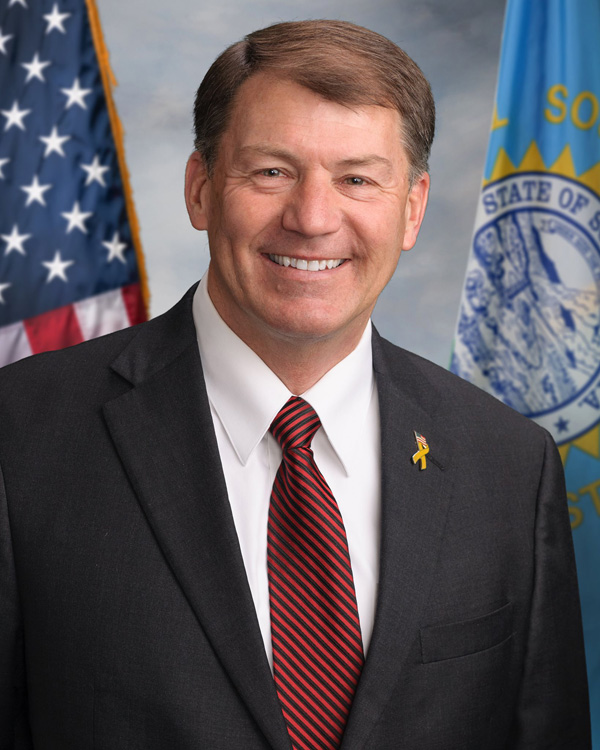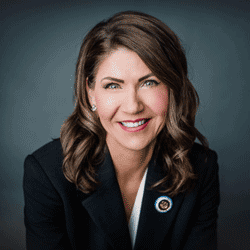

Adult Supervision
By U.S. Sen. Mike Rounds (R-S.D.)
I come from a big family – a good Catholic family! I’m the oldest of eleven kids – Mike, Mick (Michele), Doc (Dennis), Doug, Tim, Dan, Tom, Pat, Steve, Scott and Jamie. We grew up together in Pierre and no matter what we did, whether it was exploring the hills north of Pierre or wandering the neighborhood, we always made an adventure out of it. Being the oldest, my parents naturally expected me to use good judgement and to keep my siblings safe. I don’t know if that meant adult supervision or just showing maturity; but for purposes of this column, we’ll say they wanted me to act mature. They’d tell my siblings to listen to me, but as you can imagine, that didn’t always happen. (I’m not naming names, but we all know I’m talking about Doug.) Whenever they’d spout off, I’d have to say, “Knock it off you guys or I’ll pound ya!” Sometimes it worked, sometimes it didn’t. If you come from a big family, you understand.
By now, you’ve heard the information that will dominate the news for the next few weeks: the death of Justice Ruth Bader Ginsburg. RBG lived a life devoted to pursuing justice. We send our prayers to her family and loved ones as they goes through this difficult time. She leaves behind a legacy of public service we can all respect.
The nation now turns its attention to filling the vacancy left behind on the Supreme Court. The court rules on things we hold most dear – our life, our liberty and our property – natural rights as Locke would call them. The next justice will be making decisions on cases involving your Second Amendment rights, your healthcare, the sanctity of human life, property rights and multiple environmental issues.
Our Founding Fathers intended the Senate to be the body to provide a mature approach to governance. George Washington is said to have told Thomas Jefferson the framers had created the Senate to “cool” House legislation, just as a saucer was used to cool hot tea. They achieved this by structuring each legislative body differently: the House, based on population, has 435 members which are elected every two years; the Senate only has 100 members, two from each state, which are elected every six years. Senate elections are also staggered so only one-third of members are up for election every two years to limit turnover and maintain stability. In the case of judicial nominations, the Founders also intended to provide a process with checks and balances on the executive branch’s ability to put members on the court. They delegated the nominating task to the president and the responsibility of confirmation to the Senate. Clearly the Founders wanted a second opinion in the form of a mature review of the president’s selection.
That brings us to the events of today, National Democrats are disappointed with the timing. They say if Senate Republicans fulfill their constitutional duty and provide ‘advice and consent’ on the president’s nominee before the election, they’ll retaliate. Should Democrats win the presidency and the Senate this November, they’ll pack the Supreme Court, which means adding additional seats to be filled by liberal justices. But to do this, they will have to eliminate the filibuster – a Senate process that leads to bipartisanship and compromise. I’ll admit the filibuster rule is frustrating for those of us who would like to see legislation move more quickly, but it’s a Senate tradition rooted in the Founder’s vision of mature decision-making. Back when there were only 26 Senators, finding consensus was easier, but even then, they strived to find consensus. Our Founding Fathers were brilliant.
If Democrats were to eliminate the filibuster, it would allow major legislation to pass by simple majority, paving the way for Democrats to raise your taxes to pay for their radical socialist agenda like the Green New Deal and Medicare for All. They would also pass D.C. and Puerto Rico statehood, in an attempt to add four safe Democrats seats to the Senate, further diluting South Dakota’s voice (the House of Representatives under Democratic control have already passed legislation providing the District of Columbia with statehood).
Elections do matter. In 2014, the people of South Dakota elected me to serve them in the Senate. That’s what I’m going to do. I’ll do my homework and meet with President Trump’s nominee, just as I did in the past with Justices Gorsuch and Kavanaugh and President Obama’s nominee Judge Garland. When the nomination comes to the floor, I’ll be fully prepared to cast my vote to fulfill my constitutional duty – providing mature leadership. Or as provided in the constitution, ‘advice and consent’.
###



 Understand data to effectively regulate railroad rates
Understand data to effectively regulate railroad rates





